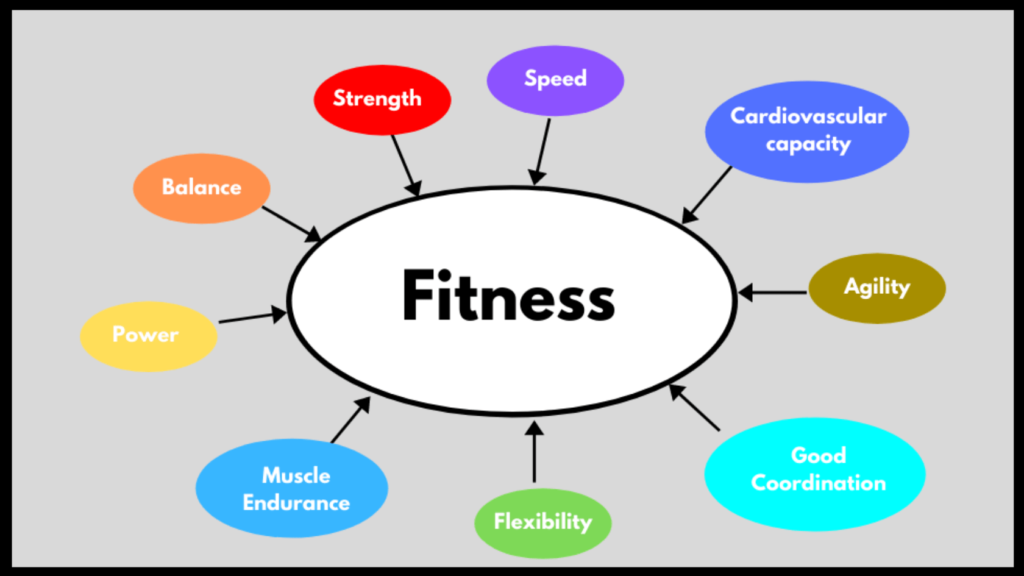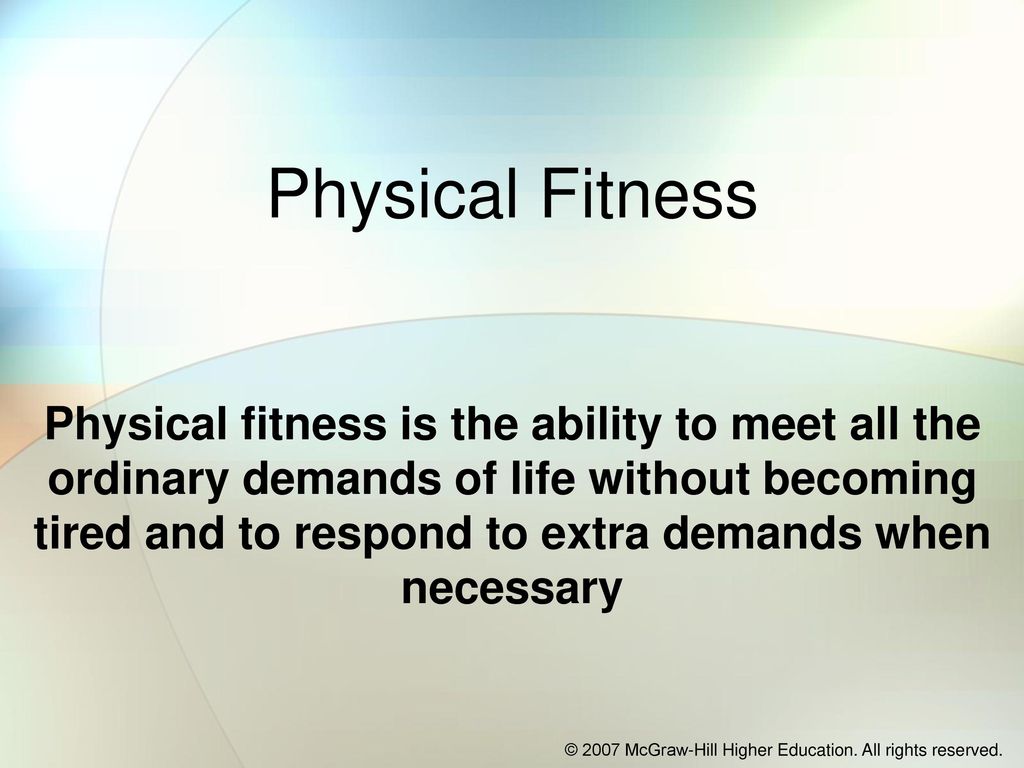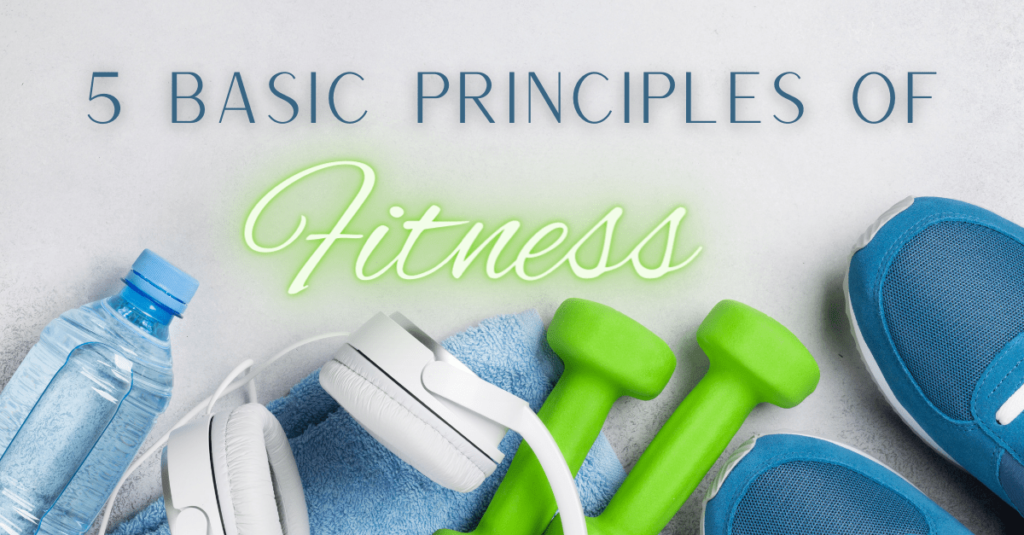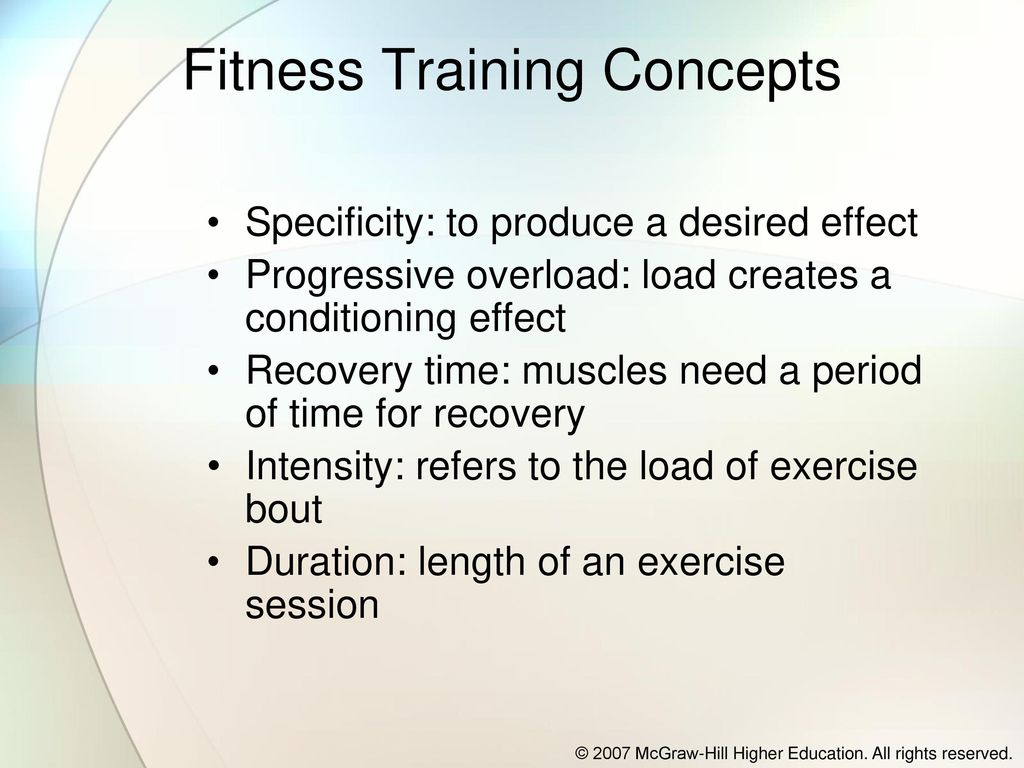In this article, you will explore the fundamental concepts of fitness that form the foundation for achieving a healthy and active lifestyle. Whether you are a beginner starting your fitness journey or an experienced individual looking to fine-tune your workout routine, understanding these basic concepts will empower you to make informed decisions about your fitness goals. From the importance of cardiovascular endurance to the benefits of strength training, this article will provide you with a comprehensive overview of the essential elements that contribute to a well-rounded fitness regimen. So, let’s dive in and discover the key principles that can help you unlock your full potential in the realm of fitness!
1. Physical Fitness
Physical fitness is the foundation of a healthy lifestyle. It encompasses various aspects of our well-being, including cardiovascular fitness, muscular strength, muscular endurance, flexibility, body composition, balance, coordination, agility, and power. By understanding and improving these components, you can enhance your overall physical health and performance in various activities.

This image is property of i0.wp.com.
1.1 Components of Physical Fitness
There are several components that make up physical fitness. These include cardiovascular fitness, muscular strength, muscular endurance, flexibility, body composition, balance, coordination, agility, and power.
Cardiovascular fitness refers to the ability of your heart and lungs to supply oxygen-rich blood to your muscles during physical activities. It is crucial for activities that require sustained effort, such as running, cycling, or swimming.
Muscular strength is the maximum force that your muscles can exert against resistance. It is essential for activities that require power, such as weightlifting or jumping.
Muscular endurance refers to the ability of your muscles to sustain repeated contractions without fatigue. It is necessary for activities that involve repetitive movements, like long-distance running or cycling.
Flexibility is the range of motion of your joints and muscles. It is crucial for activities that require a wide range of motion, such as dancing or gymnastics.
Body composition refers to the proportion of lean mass (muscle, bones, organs) and fat mass in your body. Maintaining a healthy body composition is important for overall health and reducing the risk of chronic diseases.
Balance is the ability to maintain your body’s equilibrium while performing various movements. It is crucial for activities that involve stability, such as yoga or martial arts.
Coordination is the ability to synchronize your body movements effectively. It is important for activities that require precise movements, such as playing sports or dancing.
Agility is the ability to change direction quickly and efficiently. It is crucial for activities that involve quick movements, such as basketball or tennis.
Power is the combination of strength and speed. It is essential for activities that require explosive movements, like sprinting or throwing.

This image is property of slideplayer.com.
1.2 Benefits of Physical Fitness
Engaging in regular physical fitness activities offers numerous benefits for your overall well-being. Some of the key benefits include:
-
Improved cardiovascular health: Regular cardiovascular exercises strengthen your heart and lungs, reducing the risk of cardiovascular diseases.
-
Increased strength and endurance: Strength training and muscular endurance exercises help build stronger muscles and increase your stamina.
-
Enhanced flexibility: Regular stretching and flexibility exercises improve your range of motion, making everyday activities easier and reducing the risk of injuries.
-
Better body composition: Engaging in physical activities promotes a healthy body composition by increasing lean muscle mass and reducing fat mass.
-
Improved balance and coordination: Activities that focus on balance and coordination enhance your overall stability and body control.
-
Reduced stress and anxiety: Physical fitness activities release endorphins, which boost your mood and help reduce stress and anxiety.
-
Increased energy levels: Regular physical fitness routines improve your energy levels, making you feel more alert and productive throughout the day.
-
Better sleep quality: Regular physical activity positively impacts your sleep patterns, promoting a more restful and rejuvenating sleep.
-
Improved cognitive function: Exercise has been shown to enhance brain function, memory, and focus, benefiting both your physical and mental well-being.
-
Overall better quality of life: By improving your physical fitness, you enhance your ability to perform everyday tasks, participate in recreational activities, and enjoy an active lifestyle.

This image is property of i0.wp.com.
1.3 Factors Affecting Physical Fitness
Various factors can affect your physical fitness level. These include:
-
Genetics: Some individuals may be genetically predisposed to have a higher or lower level of physical fitness. However, everyone can make improvements through regular exercise and training.
-
Age: Physical fitness tends to decline with age. However, engaging in regular physical activities can help slow down this decline and improve overall fitness.
-
Lifestyle: Sedentary lifestyles, unhealthy eating habits, and the lack of regular physical activity negatively impact physical fitness levels. Making positive lifestyle changes is crucial for improving fitness.
-
Injury or illness: Injuries or illnesses can temporarily or permanently affect physical fitness levels. Rehabilitation and proper medical care are important in regaining and maintaining fitness.
-
Environmental factors: Environmental factors such as air quality, altitude, temperature, and humidity can impact performance and physical fitness levels.
-
Motivation and consistency: Consistently engaging in regular physical activity and maintaining motivation are key factors in improving and maintaining physical fitness levels.
In summary, physical fitness is a broad concept that encompasses various components and is crucial for overall health and well-being. By understanding the components, benefits, and factors affecting physical fitness, you can tailor your fitness routine to meet your specific goals and improve your overall quality of life.

This image is property of slideplayer.com.
